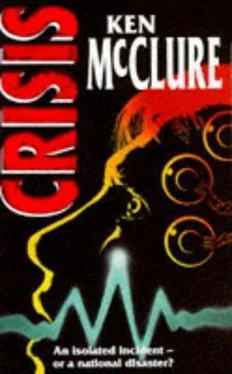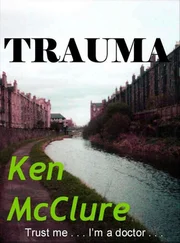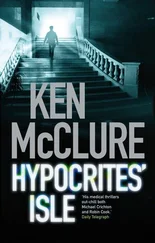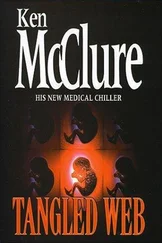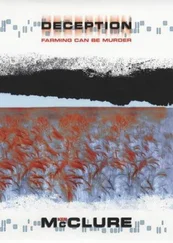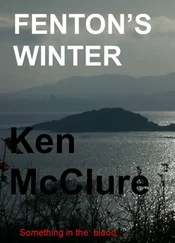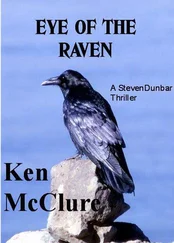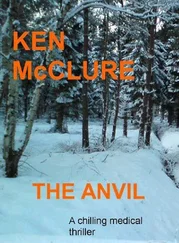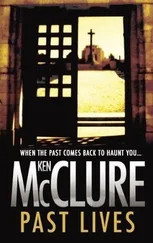Ken McClure - Crisis
Здесь есть возможность читать онлайн «Ken McClure - Crisis» весь текст электронной книги совершенно бесплатно (целиком полную версию без сокращений). В некоторых случаях можно слушать аудио, скачать через торрент в формате fb2 и присутствует краткое содержание. Жанр: Триллер, на английском языке. Описание произведения, (предисловие) а так же отзывы посетителей доступны на портале библиотеки ЛибКат.
- Название:Crisis
- Автор:
- Жанр:
- Год:неизвестен
- ISBN:нет данных
- Рейтинг книги:3 / 5. Голосов: 1
-
Избранное:Добавить в избранное
- Отзывы:
-
Ваша оценка:
- 60
- 1
- 2
- 3
- 4
- 5
Crisis: краткое содержание, описание и аннотация
Предлагаем к чтению аннотацию, описание, краткое содержание или предисловие (зависит от того, что написал сам автор книги «Crisis»). Если вы не нашли необходимую информацию о книге — напишите в комментариях, мы постараемся отыскать её.
Crisis — читать онлайн бесплатно полную книгу (весь текст) целиком
Ниже представлен текст книги, разбитый по страницам. Система сохранения места последней прочитанной страницы, позволяет с удобством читать онлайн бесплатно книгу «Crisis», без необходимости каждый раз заново искать на чём Вы остановились. Поставьте закладку, и сможете в любой момент перейти на страницу, на которой закончили чтение.
Интервал:
Закладка:
Stoddart opened up a map and spread it over his desk. He traced a pencil line round an area in the north-west of the country and said, ‘This is the area Lawrence was concerned with. The main communities are at Achnagelloch and Stobmor.’
Bannerman saw that the line Stoddart had drawn marked out an area to the west of the Invermaddoch power station. He asked, ‘What about east of here?’ pointing to it with his finger.
‘There are no people living to the east of the station within fifty miles,’ replied Stoddart. ‘It’s barren moorland, not even good enough for sheep.’
‘I see,’ said Bannerman.
‘Do you have access to the public health records for the area?’ asked Bannerman.
‘If you mean, do I know if the region has a higher than normal incidence of child leukaemia and the like, then yes I do. The figures are higher than for non-nuclear areas, but not high enough to cause alarm or be in any way conclusive in a statistical sense.’
‘How about the figures for carcinoma?’ asked Bannerman.
‘Again, the figures for tumours are statistically higher than the norm but the population for the region is so low that it’s very difficult to reach firm conclusions. Here they are.’ Stoddart handed Bannerman a clear plastic file.
‘Was it ever different?’ murmured Bannerman.
‘Pardon?’
Trying to make sense out of statistics,’ answered Bannerman. ‘It’s often a case of the singer not the song, don’t you think?’
Stoddart’s blank look said that he didn’t know what Bannerman was talking about. Bannerman said, ‘I think I’ve managed to collect enough in the way of paper to keep me busy for a bit. I wonder if someone could tell me how to get to my accommodation? I’ll settle in there and start going through these files.’
‘Of course,’ said Stoddart. ‘I’ll have someone drive you.’
That’s not necessary,’ protested Bannerman, but Stoddart insisted, saying that they had a pool of drivers ‘sitting on their hands’. ‘You won’t mind if it’s a van will you?’
The driver sent up from the pool to drive Bannerman was a short, round-faced man with ruddy cheeks and a lop-sided grin. His peaked cap was pushed to the back of his head, emphasizing a probable easy-going approach to life. ‘Let me take that for you,’ he said, stretching out to take Bannerman’s bag from him and opening the passenger door of a black, 15 cwt van with darkened glass windows at the back. It was no great challenge to guess what the van was usually employed in transporting. The driver confirmed this by saying, ‘It’s nice to have a live passenger for a change.’
‘Do you know Edinburgh at all?’ asked the driver, as they drove towards the castle.
Bannerman said not, adding, ‘I was a medical student in Glasgow many years ago.’
‘I’d keep quiet about that if I was you,’ said the man, with a grin.
As they turned into the High Street, the driver, who by now had introduced himself as Willie MacDonald, said, ‘You’ll be staying in the Royal Mile. That’s the main street in the old town of Edinburgh; it connects the Castle at the top with Holyrood Palace at the foot.’
They turned off into a courtyard on the left and Willie said, ‘Here we are, Darnley Court.’
Bannerman got out and looked up at a recently restored tenement building, judging by the cleanness of the stonework. There was a paved courtyard at the front with large flower tubs posted around it. In January they were empty, save for wet earth.
‘You are on the top floor,’ said Willie. He led the way into the building and went up with Bannerman to open the door and then hand him the keys.
‘This is wonderful,’ said Bannerman, walking over to the window to look at the view and marvel at how high up they were.
‘It’s a beautiful city Doctor.’
‘Breathtaking.’
‘You’re looking out over Princes Street Gardens, to the new town down there,’ said Willie, ‘and beyond that, the Firth of Forth with its islands.’
‘What’s the big one?’ asked Bannerman.
‘Inchkeith,’ replied Willie. He pointed out several other prominent landmarks far below them and joked that he hoped Bannerman had a head for heights.
Bannerman felt that at least one good thing had happened to him today. He thanked MacDonald and tried to tip him, but the driver declined, assuring him that Professor Stoddart would have his guts ‘for one of his practical classes’ if he accepted.
After a quick look round the apartment, Bannerman unpacked and took advantage of the coffee that someone had thoughtfully supplied along with a few other basic necessities in the kitchen. He pulled a chair over to the window, and settled down in it with his mug to peruse the files he had been given. He had barely begun when the telephone rang and startled him. It was George Stoddart.
‘I forgot to say,’ said Stoddart, ‘that my wife and I would be delighted if you would join us for dinner this evening?’
‘That would be very nice,’ replied Bannerman, thinking it would be nothing of the kind. He took down details of the address and agreed to be there for eight. There were few things Bannerman liked less than ‘academic’ dinners but he accepted it as part and parcel of life, a necessary evil. It did however, put paid to his plans to explore the neighbouring hostelries that evening. He got back to reading through the files.
FOUR
After an hour, Bannerman stopped reading and taking notes to make more coffee. He looked out of the window while the kettle boiled and mulled over what he had learned so far. The medical records for the region had failed to provide him with what he was looking for. Although it was true that there had been an increase in leukaemia and cancer in the area round Achnagelloch and Stobmor, it was not a striking one — even when he examined the raw data instead of the statistics, which he didn’t trust.
He had been hoping to find something in the figures to indicate that the radiation leak from the power station had been severe enough to affect the health of the local community. This, in turn, would have indicated that the levels of radiation around the immediate area of the power station would have been high enough to account for a mutation occurring in the Scrapie virus. A twelve per cent increase in childhood leukaemia sounded a lot, but it was based on a relatively small number of cases. It might have been due to a radiation leak but, on the other hand, it might not. This conclusion merited an expletive from Bannerman.
He sat down with his coffee and turned his attention to the details of the three deaths. It made alarming reading. The dead men had been employed as farm labourers on Iverladdie Farm, to the north of Achnagelloch. Only one of them, Gordon Buchan, had been married; he had lived with his wife in a tied cottage on the farm. The other two had stayed in lodgings in Achnagelloch. An outbreak of Scrapie had been reported in the sheep of Inverladdie and all three had been involved in the disposal of the carcasses.
The men had died within a three week period of working on the slaughter, after suffering headaches, vomiting, and finally, dementia. One of the two bachelors had run amok in the streets of Achnagelloch, smashing windows and screaming obscenities before being constrained and taken to the cottage hospital where he died the following day. Witnesses had described him as being ‘out of his skull’.
The married man had been nursed by his wife until he had gone into a coma. His eyes had remained open but he had not been able to communicate or respond to anything she said. Just before she called the doctor for the last time, who in turn called the ambulance, the man had appeared to develop some unbearable itch and had scratched himself all over until he bled.
Читать дальшеИнтервал:
Закладка:
Похожие книги на «Crisis»
Представляем Вашему вниманию похожие книги на «Crisis» списком для выбора. Мы отобрали схожую по названию и смыслу литературу в надежде предоставить читателям больше вариантов отыскать новые, интересные, ещё непрочитанные произведения.
Обсуждение, отзывы о книге «Crisis» и просто собственные мнения читателей. Оставьте ваши комментарии, напишите, что Вы думаете о произведении, его смысле или главных героях. Укажите что конкретно понравилось, а что нет, и почему Вы так считаете.
